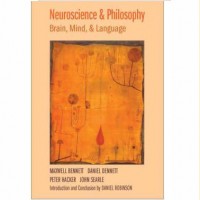This book is a good ‘ol fashion philosophers slugfest at its best. But I’m getting ahead of myself… T.H. Huxley famously said: how it is that any thing so remarkable as a state of consciousness comes about as the result of irritating nervous tissue, is just as unaccountable as the appearance of the Djin when…
Posted on February 4, 2013
In Book Reviews, by Greg
Posted on January 14, 2013
In Academic Work, by Greg
This is one of my more recent papers, which was recently accepted to the Southern Society for Philosophy and Psychology’s (SSPP) 2013 annual meeting. It looks at whether The Extended Mind hypothesis can account for cognitive states other than beliefs that aren’t usually discussed, such as desires and fears. The Abstract: The extended mind hypothesis…
Posted on January 14, 2013
In Academic Work, by Greg
This paper has recently had the honor of being accepted to the main program of the Pacific APA’s upcoming 2013 meeting. Any feedback that might help me prepare for presenting this one is greatly appreciated. The abstract: The debate between judgment internalists and judgment externalists is fought over whether moral judgments are necessarily motivating, or…
Posted on January 14, 2013
In Academic Work, by Greg
This paper began as something written for a seminar on Edmund Husserl. The original focused on how Husserl’s work anticipated advancements in cognitive science and embodied cognition research. This paper here was an eventual edit of that original paper that was presented as a poster presentation at the Society for Philosophy and Psychology’s (SPP) 2012…
Posted on January 14, 2013
In Academic Work, by Greg
This was one of my earliest papers when I began studying philosophy academically. It attempted to use progress in science as a case study, and defense of, Evolutionary Epistemology. It’s sprawling, and it’s very rough and a bit rambling, but I still stand by most of the ideas in it. One day I’d like to…
Posted on April 20, 2012
In consciousness, by Greg
If you remember something wrong, is the label “memory” still accurate? Does the label of memory necessitate a 1:1 correspondence with the past? If not 1:1, how much correspondence with the past is necessary for us to still be comfortable using the label of memory? More importantly, if we can talk about a memory being…




